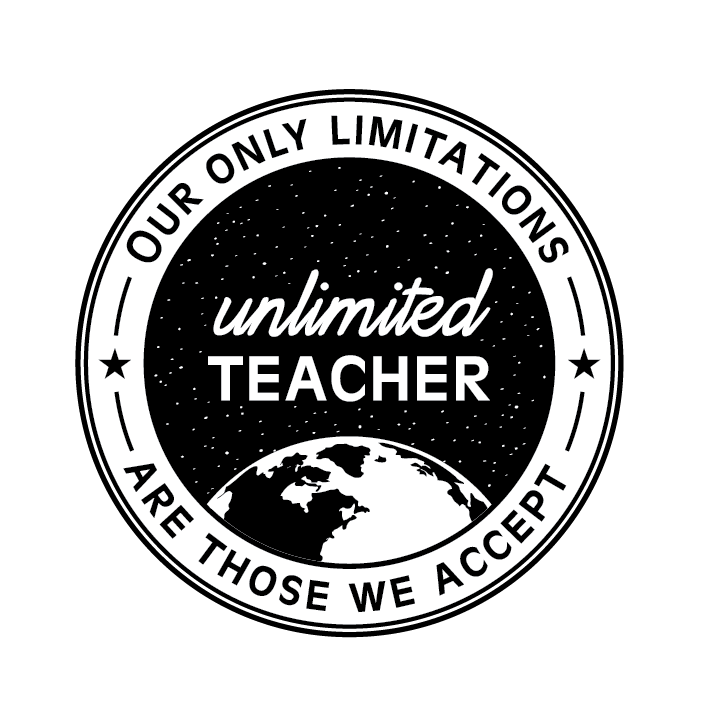What's Next? 2018-19 Ideas Inspired by Twitter this Summer
As education-creators, we find inspiration everywhere, struggling to turn off our creativity in the hopes of finding ideas to inspire our students, to improve our instruction, and to set the next goal.
Here is a list of 2018-19 school year ideas inspired by the amazing educators in my Twitter-based Professional Learning Network.
1. Informational, nope!... INSPIRATIONAL Meetings
Rather than meeting to review information every few weeks, administrators and teachers can find other ways to disseminate those points, like email, Google Forms, Google Classroom, Padlet, or Flipgrid. Those valuable hours are better spent letting colleagues share stories, ask questions, and inspire one another.
Teachers can be trusted to meet and discuss pedagogy, tools, technology, processes, assessments, and project-based learning ideas. (And even if a few people have some other things to discuss, they'll be creating community of support and trust.)
Like a #coffeeEDU or un-conference, teachers can learn from teachers of any subject and grade level. By allowing teachers from different curriculums, grades, and sites, to meet without specific agendas, we can create a culture of autonomy, creativity, and encouragement, much like we want for our students.
So, how would we start? If a #coffeeEDU or un-conference free-for-all isn't your style, what if the staff shared a Padlet or spreadsheet the week before the meeting time with a variety of programs, tools, thematic topics, and assessment ideas? Teachers could then return to those topics the day before the meeting time to state whether they would like information or could provide information. Similar topics could be organized into one space for collaboration. Teachers could move from topic to topic as they feel necessary.
We often ask for time to meet with other teachers, to not have "top-down" PD, to be trusted to create lessons and experiences for our students, to work across curriculums. This is one step forward and seems doable!
2. Novel-focused Socratic Seminars with Community Learning Networks
We want students to read. We want students to see the relevance in their learning. We want students to be respected and to be respectful. We want students to be able to speak with, and listen to, a variety of people.
“Bring in stakeholders!” they say.
Discussions are more influential with a diverse group of participants. If we could bring in parents, family members, or community members, to join our end-of-novel or -unit discussions, we could allow students more opportunities to reach these goals.
At Back to School Night, why not provide a list of the year’s novels, their themes, and essential questions, then ask attendees to choose a novel to read and volunteer to come enjoy a Socratic Seminar discussion of the novel? As students and volunteers read over those weeks, they could provide articles, TED talks, videos, #BookSnaps, and other related information in a shared Padlet or Flipgrid. This way, students can see the novel from another adult’s perspective rather than only the teacher’s.
In the volunteer form, you could even ask for the person’s occupation, areas of expertise, or experience. Who knows when students might want to interview a lawyer for Of Mice and Men or To Kill a Mockingbird, or a medical professional for Catcher in the Rye or One Flew Over the Cuckoo’s Nest?
*** Comfort Zone Tip: Perhaps ask parents to volunteer for a class period which does NOT include their student.
Looking forward to trying this with you, Summer Fisher!
3. Coast-to-Coast, Same Topic Blogs
In an #EngageChat, Akilah Ellison and I quickly connected over her inspiring self-reflection post and image. This Virginia-based teacher and doctoral candidate and I hope to have students take their inspiration from the image below, reflect, then write, revise, share their blog post on the topic.
Our students will have the opportunity to read and comment on each other's blogs and since they're from opposite sides of the country, Virginia, and California, I'm sure they'll have a lot to discuss!
I'll soon find, print, and frame this image by Celestine Chua. 101 topics for self-reflection!
4. Positivity Postcards
Inspired by a PLN colleague (does anyone remember who shared this great idea?!), I have created four versions of postcards.
During my first year, I started calling out to students as they left, "Do good things! Be good people!" and it turned into a mantra. Students started calling back, "BGP!" And they still are great people. At one point, I started making and posting little handmade certificates with students' names followed by their good deeds. I was shocked when students, freshmen and juniors, started bringing in tales of their efforts and the kindness of others. Even students who weren't in my class had certificates on our wall.
I'm not sure why I stopped, but I'm excited to do something like this again.
When I saw this postcard idea, I wondered what I wanted to appreciate about my students, what really matters. I decided the postcards wouldn't have an academic focus. These will be a nice character reminder and a note of appreciation. Plus, they will let me return each day to why I wanted to be a teacher and that special first year.
I'll be handwriting them, of course, and the goal is one each day. This gives me the chance to keep it going, experience and share some daily gratitude, let students know I appreciate them as people, and let families know how well their student treats others in class (because sometimes their true character appears more at school, right?). I have 160 students, so everyone will get at least one postcard by June.
If you'd like to use these for some positive reinforcement, feel free to use and share with colleagues!







